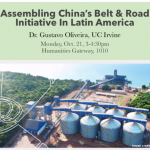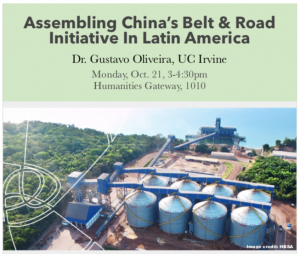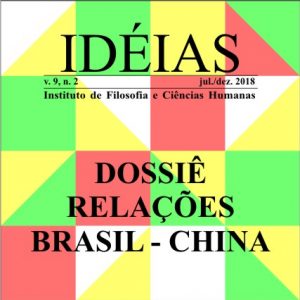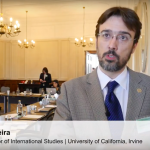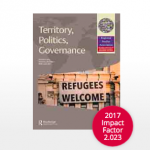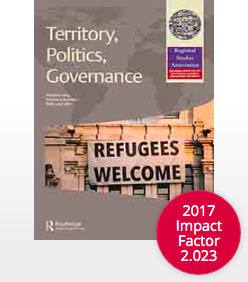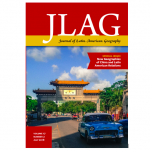Brazilian expert: The “Belt and Road Initiative” is good for Brazil but the country should defend its own interests
Dr. Oliveira interviewed by Sputnik News (Beijing), the Russian Satellite News Agency, Beijing office.
Evgenii Aferin, Sputnik News Agency Beijing, November 20, 2019
Excerpts from original English statements provided by Gustavo Oliveira
…
Gustavo Oliveira, an assistant professor in the Department of Global and International Studies at the University of California, Irvine, said: “Some Brazilian sectors welcome the BRI, especially agribusiness, mining, and logistics (especially ports), since they already have strong market access to China and seek improved infrastructure to facilitate exports.”
Oliveira pointed out that “the Brazilian government wants to attract Chinese capital and partners while retaining control over the projects and priorities in the initiative.”
Oliveira also said that “other industries are skeptical about the ‘Belt and Road’ because Brazilian industrial enterprises and production infrastructure companies regard Chinese companies as their main competitors. The current Brazilian government is trying to coordinate these conflicting interests, arguing they ‘welcome the synergies’ between China’s BRI and Brazil’s own national projects for infrastructure construction.”
…
For the full length interview (in Chinese), see:
http://sputniknews.cn/politics/201911201030085496/

